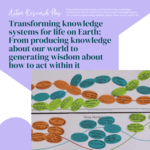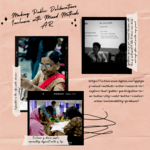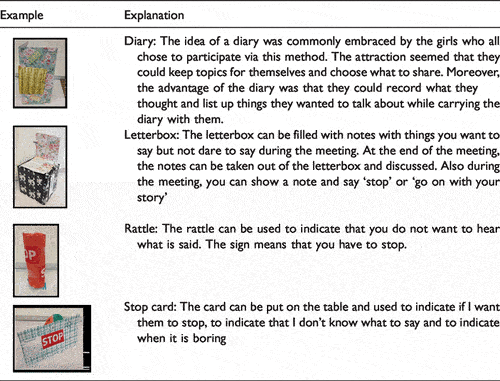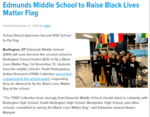Transforming knowledge systems for life on Earth: From producing knowledge about our world to generating wisdom about how to act within it

Many of us work in knowledge systems, including universities, research institutes or educational organizations. We shape and reshape them on a daily basis. They are important for contemporary societies. They are, however, also arguably failing humanity. Failing, when their impact is measured against the level of progress being made in stimulating the societal changes needed […]
Read More...Making Public Deliberations Inclusive with Mixed Methods AR

What if all public deliberations became: Inclusive of diverse people, representing different walks of life; Egalitarian spaces for fair, reasoned, discussion, with time for participants to listen to diverse views, develop and weigh options, to prioritise ways forward; Influential in the city’s public decision-making!
Read More...Six STEM Faculty and an Action Researcher Decide to Collaborate…

A blog post by Catherine Barber If you thought the title of this blog was the opening line of a joke, we would not be surprised! In today’s academic culture of silos and extreme research specialization, it seems almost comical to imagine an interdisciplinary collaboration that merges traditional inquiry with the methods of action research. […]
Read More...Co-creating participation tools with children within child protection services: What lessons we can learn from the children

Abstract provided on behalf of the authors: Ganna G van Bijleveld, Marjonneke de Vetten, Christine WM Dedding Nowadays, the question no longer is whether children should participate in the decision-making process of issues that affect their lives; the focus lies, instead, on how to ensure that children can participate in a meaningful way. Participation in child protection proceedings has […]
Read More...Practicing YPAR for School Equity

Blog post by Quin Gonell Given my prior experience as high school teacher engaging with culturally sustaining and emancipatory pedagogies, it was only natural that I should find appeal in frameworks that make methods of knowledge creation accessible to youth. Thus, as early as my second semester as a doctoral student I became interested in […]
Read More...